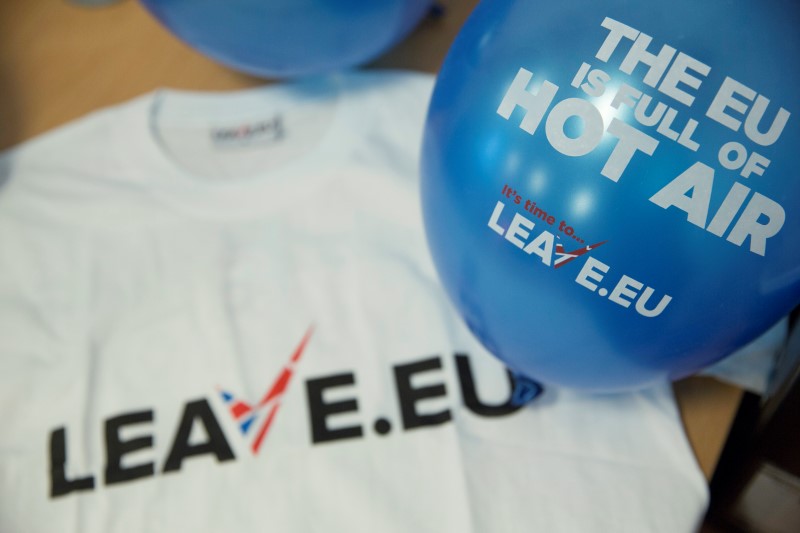By Estelle Shirbon
LONDON (Reuters) - The "in" camp is ahead by a 12-point lead ahead of a referendum on whether Britain should stay in or withdraw from the European Union, but the gap has narrowed, according to the latest opinion poll.
Support for staying in stood at 51 percent, while 39 percent wanted a so-called "Brexit" and 10 percent were undecided, according to the ComRes poll for the Daily Mail.
ComRes said the "remain" lead over "leave" had narrowed by 6 points since its last poll for the same newspaper in January, but was in line with a poll it conducted for ITV (L:ITV), released last week.
It said this provided further evidence that the process of renegotiation of Britain's terms of EU membership, which culminated in a deal clinched by Prime Minister David Cameron on Friday, had dented the "in" camp's lead.
A separate poll, conducted by YouGov for the Times newspaper, found both sides were neck and neck ahead of the June 23 referendum, with 37 percent wanting Britain to stay in, 38 percent wanting to leave and 25 percent undecided.
The contrast between the two polls was consistent with a trend that has been apparent for several months, whereby telephone polls have found a comfortable lead for "in" while online polls have found evidence of a much tighter race, with "leave" ahead in some cases.
The ComRes poll was done over the telephone while the YouGov poll was conducted online.
YouGov's poll was the first to be published by the firm since it introduced methodological changes to give greater weight in its samples to people who say they pay little attention to politics.
Over-representation of politically engaged voters in poll samples is thought to be one of the reasons why pollsters got last year's general election spectacularly wrong.
Online polls on the referendum issue have been getting a much higher proportion of "don't know" responses than phone polls.
"Judging how many people really have an opinion and will turn out to vote is the big question of this campaign," YouGov's Anthony Wells and Stephan Shakespeare wrote in an analysis of the contrasting polls.
"Polls three or four months before a referendum have tended to be poor predictors, but ours show that Remain has notable advantages: leaving is seen as bad for jobs, bad for British influence, bad for the economy. Remaining is seen to be the safe option," they wrote.
The British Social Attitudes Survey, a face-to-face survey using a random sampling method believed to give the most accurate results, found in its most recent research that 60 percent wanted to stay while 30 percent wanted to leave.

The research, conducted between July and November last year, suggested that the economy trumped sovereignty and immigration as the key issue in the referendum, with only those Britons who were convinced that the country would benefit economically from a "Brexit" determined to vote for that option.